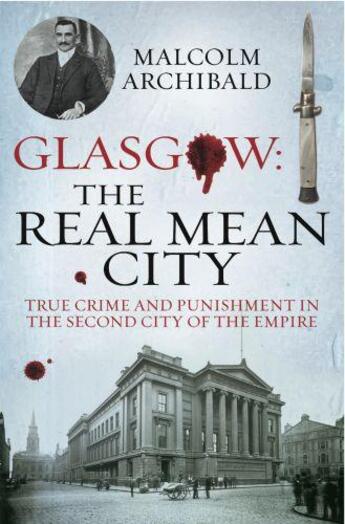Merci à toutes et à tous pour cette aventure collective
Passionné(e) de lecture ? Inscrivez-vous
gratuitement ou connectez-vous pour rejoindre la
communauté et bénéficier de toutes les fonctionnalités du site !

There cannot be many cities where crime could mean anything from singing a seditious song to stealing a ship, but nineteenth-century Glasgow was a unique place with an amazing dynamism. Immigrants poured in from Ireland and the Highlands, while the factories, shipyards and mills buzzed with innovation. However, underneath the hustle and bustle was a different world, as an incredibly diverse criminal class worked for their own profit - with a total disregard for the law. The highways and byways were infested with robbers; garrotters jumped on the unwary; drunken brawls disfigured the evening streets; prostitutes lured foolish men into dark corners; conmen connived clever schemes; and murder was nearly commonplace. This was a dark and dangerous world, with a volatile population and the constant threat of riots. Holding back the tide of lawlessness was Britain's first professional police force, established in Glasgow in 1800. Their task of policing the city was daunting as they faced everything from petty crime to murder, the notorious Paisley Union Bank robbery to a string of jewellery thefts in the city centre. Glasgow: The Real Mean City is a fascinating account of the century-long struggle of the forces of law and order as they battled to bring peace to a troubled city.
Il n'y a pas encore de discussion sur ce livre
Soyez le premier à en lancer une !

Merci à toutes et à tous pour cette aventure collective

Lara entame un stage en psychiatrie d’addictologie, en vue d’ouvrir ensuite une structure d’accueil pour jeunes en situation d’addiction au numérique...

Un douloureux passage à l'âge adulte, entre sensibilité et horreur...

Blanche vient de perdre son mari, Pierre, son autre elle-même. Un jour, elle rencontre Jules, un vieil homme amoureux des fleurs...